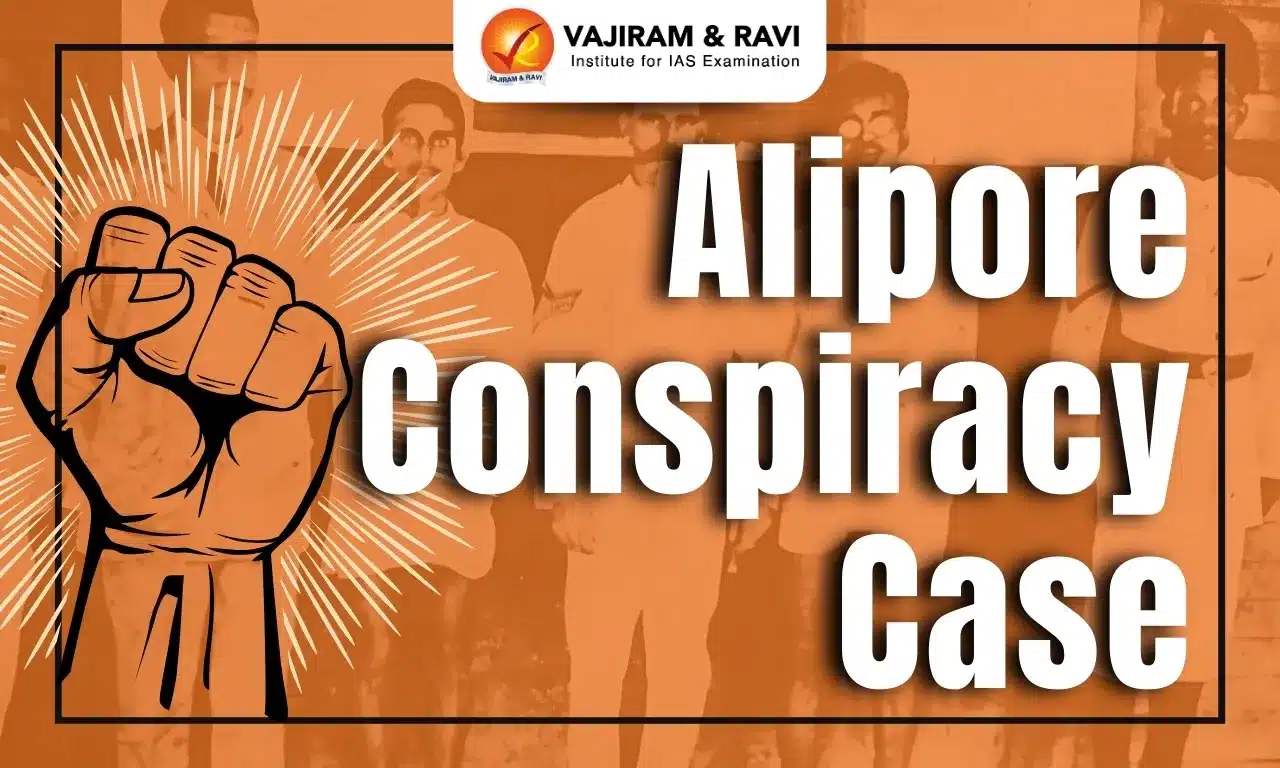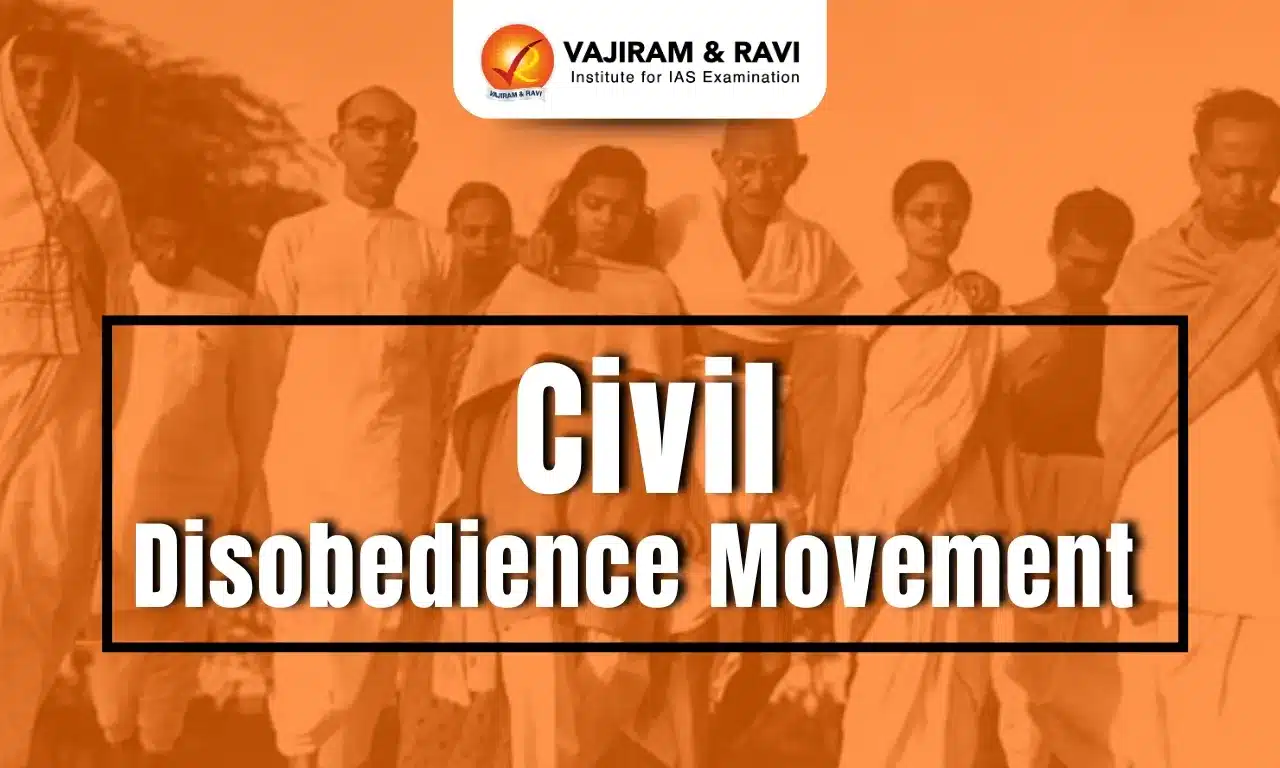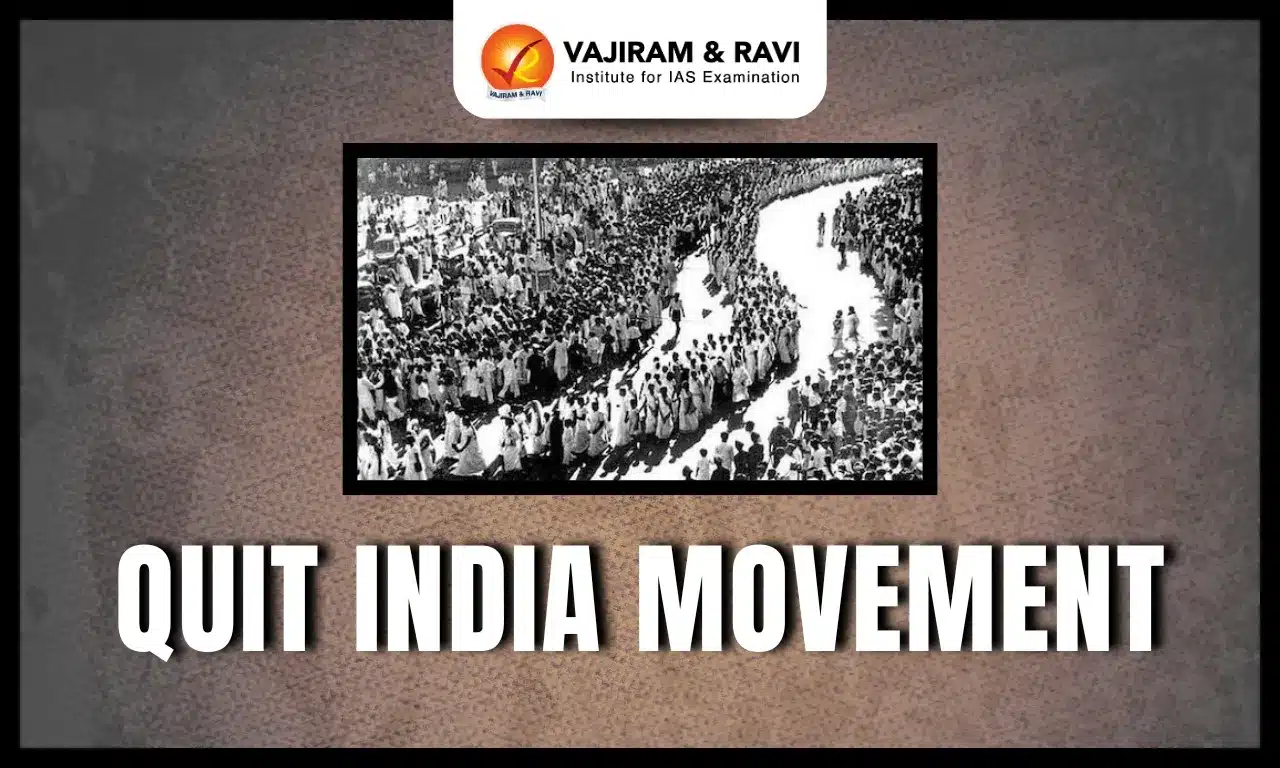Alipore Conspiracy Case (1908), or the “Emperor vs Aurobindo Ghosh and others” also known as the Muraripukur or Manicktolla bomb conspiracy was a pivotal legal and political event of the Indian independence movement, that took place from 1908 to 1909. Alipore Conspiracy Case arose in the aftermath of an assassination attempt on British Magistrate Douglas Kingsford by young Bengali nationalists Khudiram Bose and Prafulla Chaki.
Alipore Conspiracy Case marked a significant escalation in revolutionary activities against colonial rule and led to the arrest of numerous members of the Anushilan Samiti, a secret society advocating for Indian independence. Alipore Conspiracy Case highlighted the conflict between Imperial and Nationalistic aspirations and also shaped the future of the Indian Independence Movement.
Alipore Conspiracy Case Background
Alipore Conspiracy Case unfolded against growing discontent in Bengal following the Partition of Bengal in 1905, which was interpreted as the British's attempt to divide and rule. This resulted in the rise of militant nationalist groups like the Anushilan Samiti, which aimed to overthrow British rule through armed struggle.
- Manicktolla Secret Society: Founded by Barindra Ghose in 1907, this Calcutta-based group of around 20 revolutionaries underwent rigorous training in physical fitness, martial arts, spiritual texts, revolutionary tactics, and the use of firearms and explosives.
- Muzaffarpur Bomb Incident: On April 30, 1908, revolutionaries Khudiram Bose and Prafulla Chaki attempted to assassinate British magistrate Douglas Kingsford by bombing his carriage, but the bomb mistakenly killed two British women instead, leading to a British crackdown.
- Arrests: On May 2, 1908, the police raided various locations in Calcutta, arresting approximately 20 suspected revolutionaries, including Sri Aurobindo and several members of the Manicktolla Secret Society.
Alipore Conspiracy Case Key Figures
Alipore Conspiracy Case has several Key figures including Aurobindo Ghosh, acquitted due to insufficient evidence; Barindra Ghosh and Ullaskar Dutt, sentenced to life imprisonment; and Khudiram Bose, executed after an assassination attempt, while Prafulla Chaki committed suicide. Chittaranjan Das defended Aurobindo, arguing his writings were philosophical.
- Aurobindo Ghosh: A prominent leader in the Indian independence movement, Aurobindo was accused of being the mastermind behind the conspiracy but was later acquitted due to lack of evidence.
- Barindra Ghosh: A key figure in the conspiracy, Barindra was initially sentenced to death, which was later commuted to life imprisonment.
- Ullaskar Dutt: He was involved in bomb-making, Dutt was also sentenced to death and later commuted to life imprisonment.
- Khudiram Bose and Prafulla Chaki: The young revolutionaries who attempted to assassinate Kingsford, resulting in the crackdown that led to the Alipore trial.
- Prafulla Chaki committed suicide, while Khudiram Bose was executed, which ignited widespread nationalist fervour.
- Chittaranjan Das: The defence lawyer who successfully defended Aurobindo Ghosh, arguing that his writings were philosophical rather than seditious.
Alipore Conspiracy Case Proceedings
Alipore Conspiracy Case trial began in May 1908, involving revolutionaries accused of waging war against the British Crown. Before the trial, they were detained at the Presidency Jail in Alipore. Mr. Norton was the Government Counsel while Chitranjan Das defended the accused; the trial also featured the assassination of key witness Narendranath Gosain by fellow revolutionaries.
- Charges and Accusations: The British colonial authorities accused Barindra Kumar Ghosh, Aurobindo Ghosh, and others of "waging war against the King" and conspiring to commit terrorism, both of which were considered high treason and punishable by death.
- Legal Proceedings: Chittaranjan Das successfully defended Aurobindo Ghosh, resulting in his acquittal for lack of evidence. Barindra Kumar Ghosh and Ullaskar Dutt, initially sentenced to death, had their sentences commuted to life in prison.
- Narendranath Gosain's Assassination: Narendranath Gosain, a key Crown witness who later became an approver, was assassinated in jail by fellow revolutionaries Satyendranath Bose and Kanailal Dutta, demonstrating the intense revolutionary spirit.
Alipore Conspiracy Case Impact
Alipore Conspiracy Case dubbed "the first state trial of any magnitude in India" had several significant impacts including intensified nationalist fervour, demonstrated the repressive tactics of the British, inspired future revolutionaries, and marked Aurobindo Ghosh's shift from political activism to spiritual leadership.
- Increased Nationalist Fervour: The trial sparked nationalist sentiment and highlighted the sacrifices of young revolutionaries such as Khudiram Bose and Prafulla Chaki.
- Revolutionary Movements: The case inspired future generations of freedom fighters and emphasized the importance of militant nationalism in India's struggle for independence.
- Leaders like Bagha Jatin took charge of Revolutionary activities.
- Repression and Resistance: The case exemplified the British government's harsh measures to suppress dissent, which fuelled resistance among Indian nationalists.
- On July 3, 1908, Tilak was arrested by the British under the charge of sedition for his articles in Kesari which justified the violent methods of the freedom struggle and criticized the British government.
- Legal Reforms: The British Government took legal measures to punish hostile press activity using the Indian Press Act of 1910. Further, the Morley Minto Reforms of 1909 were passed to pacify the Moderates and quell the National Movement.
- Aurobindo's Transition to Spirituality: After being acquitted, Aurobindo Ghosh retired from active politics and turned to spirituality, eventually establishing the Sri Aurobindo Ashram in Pondicherry.
| Other Related Posts | |
| Extremist Phase of Indian National Congress | Bal Gangadhar Tilak |
| Chapekar Brothers | Aurobindo Ghosh |
| Bipin Chandra Pal | Alipore Conspiracy Case |
| Lala Lajpat Rai | Surat Split |
Last updated on March, 2026
→ UPSC Notification 2026 is now out on the official website at upsconline.nic.in.
→ UPSC IFoS Notification 2026 is now out on the official website at upsconline.nic.in.
→ UPSC Calendar 2026 has been released.
→ UPSC Final Result 2025 is expected to be released soon.
→ Check out the latest UPSC Syllabus 2026 here.
→ Join Vajiram & Ravi’s Interview Guidance Programme for expert help to crack your final UPSC stage.
→ UPSC Mains Result 2025 is now out.
→ UPSC Prelims 2026 will be conducted on 24th May, 2026 & UPSC Mains 2026 will be conducted on 21st August 2026.
→ The UPSC Selection Process is of 3 stages-Prelims, Mains and Interview.
→ Prepare effectively with Vajiram & Ravi’s UPSC Prelims Test Series 2026 featuring full-length mock tests, detailed solutions, and performance analysis.
→ Enroll in Vajiram & Ravi’s UPSC Mains Test Series 2026 for structured answer writing practice, expert evaluation, and exam-oriented feedback.
→ Join Vajiram & Ravi’s Best UPSC Mentorship Program for personalized guidance, strategy planning, and one-to-one support from experienced mentors.
→ Check UPSC Marksheet 2024 Here.
→ UPSC Toppers List 2024 is released now. Shakti Dubey is UPSC AIR 1 2024 Topper.
→ Also check Best UPSC Coaching in India
Alipore Conspiracy Case FAQs
Q1. What was the Muzaffarpur conspiracy case?+
Q2. Who was the leader of the Alipore bomb case?+
Q3. What is the other name for the Alipore Bomb Case?+
Q4. What was the goal of the Alipore bomb case conspiracy in 1908?+
Q5. Who was the advocate for the Alipore conspiracy case?+















